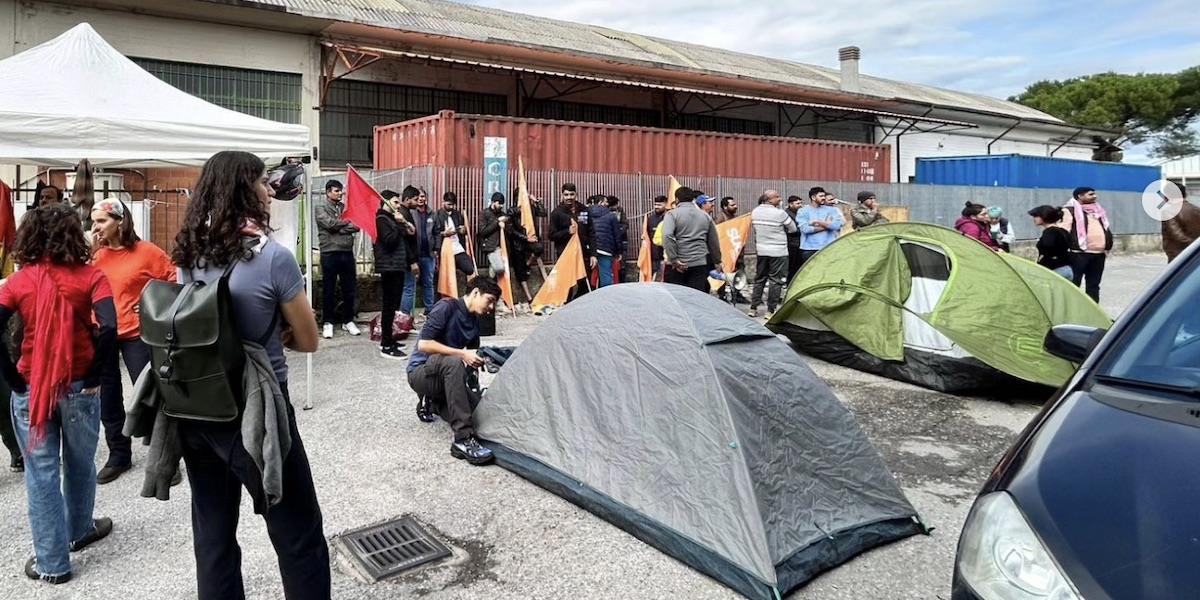On Sunday, a prolonged strike began in several Chinese-owned factories in the Prato textile district, the largest in Europe and a key hub for “Made in Italy” clothing production. However, the district is also notorious for entrenched labor exploitation, particularly in Chinese-run companies. It’s telling that the strike started on a Sunday, a day when businesses are supposed to be closed—but in reality, they rarely are.
The strike was organized by the Sudd Cobas Prato-Firenze union, which has long been advocating for the rights of workers in these types of factories, specifically calling for the enforcement of a 40-hour workweek. According to union reports, employees often work over 80 hours per week—12 hours a day, seven days a week—off the books and without protections, or under part-time contracts that are not honored. Some workers have been asked to return their Christmas bonuses, while others have never even seen a paycheck.
The workforce primarily consists of people from Pakistan, another significant community in the area after the Chinese. Many of the most exploited are asylum seekers, who find it particularly difficult to secure jobs and thus accept any conditions. “We’ve never had gloves, shoes, or even a bandage if we cut our fingers. They talk to us like we’re animals. We have to fight to get paid,” one worker told Il Fatto Quotidiano.
The strike affects five companies in and around Prato: Confezione Lin Weidong, a factory producing bags and belts; Ly Zhong Zipper, specializing in custom zippers; Tessitura Sofia, Tang ironing services, and 3 Desy, a small logistics company. Most of these factories have been inspected at least once in the past year, leading to minimal fines or the formalization of some part-time contracts. Yet, workers report they are still forced to work 12-hour days, seven days a week.
Labor exploitation remains a persistent issue, as it allows these companies to stay afloat despite the severe crisis that has hit the clothing industry in recent years. Both luxury and lower-end brands have been affected, and this downturn is also hurting what remains of the artisan sector, which has been in decline since the early 2000s. The crisis, exacerbated by wars in Ukraine and Gaza—reducing exports to markets like Russia and the Middle East—has also been fueled by shifting consumer habits. Many companies are at risk of closing, with some already having shut down, and there has been an increase in layoffs and a general drop in production due to a lack of orders.

